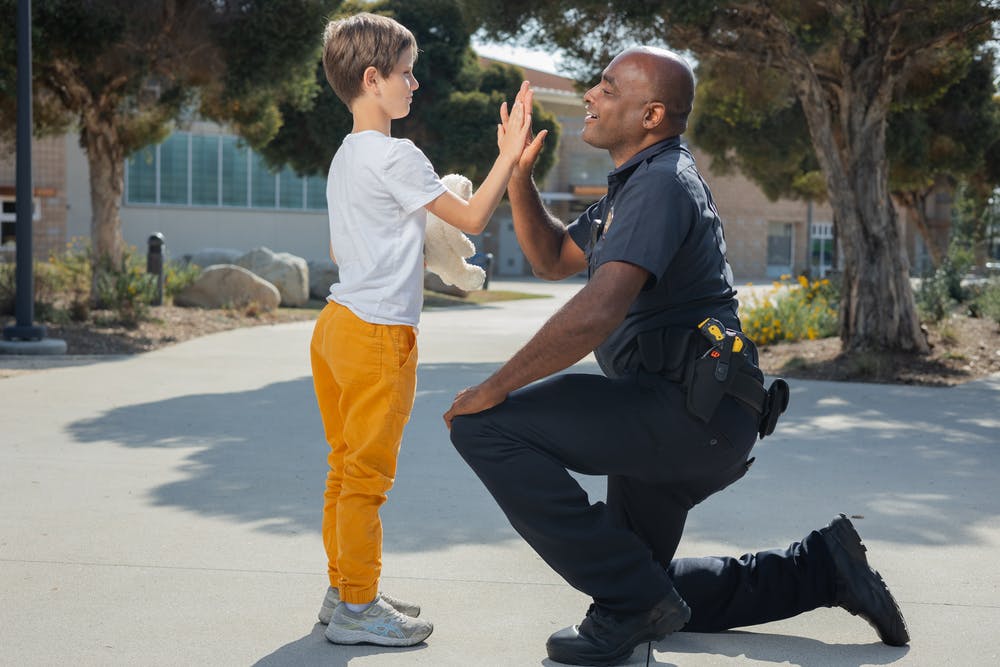Mastering Public Safety Begins with Thought
Bryon G. Gustafson is an Assistant Professor and Director of the Master of Public Safety program in the School of Continuing and Professional Studies (SCPS) at the University of Virginia. As a graduate of the FBI National Academy, a former Dean of Public Safety, Sergeant-at-Arms for California State Assembly, and a former Chief of Police, Gustafson is leading UVA’s Master of Public Safety program to prepare public safety leaders for their future careers. SCPS looks forward to graduating its first class in May 2022.
In Summer 2021, the School of Continuing and Professional Studies at the University of Virginia launched its first graduate degree program—the Master of Public Safety (MPS). The program is designed to develop senior public safety personnel pursuing thought leadership in their industry. What does that mean in practice? It means that the MPS is intended for those public safety leaders who have both experience and some level of dissatisfaction with the status quo. It aims to purposefully disrupt the norm of muddling through (Lindblom, 1959) in path-dependent (David, 1985) “we’ve always done it this way” patterns. We expect MPS graduates to forge new paths and more effectively address public safety needs in—and with—their communities.
 This is difficult work. Communities and our social world are complicated. Who is “the public” and what is “safety?” Who has a right to public safety services? Should we focus on resourcing prevention or enforcement? Who decides and how? In order to answer such questions and address pressing public safety needs, we advocate for MPS students to embrace what McClellan (2020) refers to as “[a] public service ethos grounded in humility…to strengthen public trust and address wicked problems” (p. 273). We also advocate routinized planning practices and community engagement (dialogue and collaboration) (McClellan & Gustafson, 2019) to co-construct public value (Moore, 1995). In short, we push MPS students to ask thoughtful questions of their communities (broadly and inclusively) and listen carefully to the answers they receive.
This is difficult work. Communities and our social world are complicated. Who is “the public” and what is “safety?” Who has a right to public safety services? Should we focus on resourcing prevention or enforcement? Who decides and how? In order to answer such questions and address pressing public safety needs, we advocate for MPS students to embrace what McClellan (2020) refers to as “[a] public service ethos grounded in humility…to strengthen public trust and address wicked problems” (p. 273). We also advocate routinized planning practices and community engagement (dialogue and collaboration) (McClellan & Gustafson, 2019) to co-construct public value (Moore, 1995). In short, we push MPS students to ask thoughtful questions of their communities (broadly and inclusively) and listen carefully to the answers they receive.
This is a contrast to how many public safety leaders have approached this work over time. On the whole, the public safety sector has a history of tradition, incrementalism, and a fair degree of paternalism bolstered by rational choice theories and neopositivist analyses. This tends to (over) simplify important decisions by distancing the personal and social dimensions of policy choices by aggregating information into “objective” variables that obscure or altogether erase critical public values. This approach has produced problematic practices like pretense stops, zero-tolerance enforcement routines, and the worst iterations of broken windows policing strategies (Kelling & Wilson, 1982) that are disproportionately hard on the poor and people of color. Navigating these complexities more curiously, intentionally, and inclusively is at the heart of the MPS.
Two of the core courses in the MPS include Creating and Sustaining Community Dialogue and Transformational Leadership in Changing Times. These courses are grounded in social science and discursive public policy approaches that Fischer and Forrester (1993) referred to as the argumentative turn—the idea that our public world is not fixed but is continually being (re) shaped by the many actors or stakeholders in a given community. This foundational orientation is coupled with macro-micro frameworks for understanding and addressing issues of public safety. This approach commonly surfaces paradox since necessary micro-actions (e.g., arresting an offender) may negatively contribute to macro-trends (e.g., the school-to-prison pipeline). Thus, a true “master” of public safety should be able to think in both macro and micro dimensions to address the immediate and systemic issues.

In sum, the MPS is about recognizing the myriad shades of gray in an industry known for its black and white judgments. Facilitating this learning process is a distinguished faculty including some of the leading thinkers and doers in policing, preparedness, and law. In Spring 2022, there are more than 130 students in the MPS program spanning the globe from Maui to Miami to Manilla. These students are exceptional public safety leaders commanding some of the largest and most complex public safety organizations anywhere. Our first graduates will thoughtfully walk the Lawn this May, and we look forward to their ongoing impact for more responsible, accountable, effective, and equitable public safety.
- A Revolution in the Air: The Wright Brothers Take to the Sky on December 17, 1903
- Musings on National Violin Day
- Making the Promise Real: How a UN Tax Convention Can Fulfill the UNDHR’s Vision
- UVA Club of Atlanta: Virtual Pilates Class
- UVA Club of Charlottesville: Hoo-liday Party
- UVA Club of Alexandria: TaxSlayer Gator Bowl Game Watch